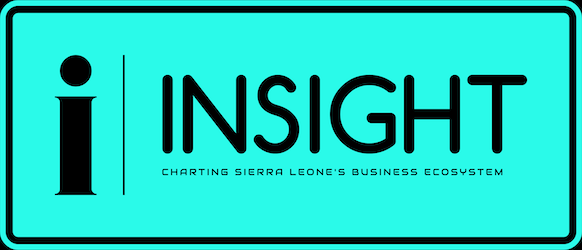
8am on Friday, 1st November at the Bintumani Conference Centre. There was an immediate sense that here was a different type of event. Energetic, polished, witty and tech savvy with a clever layering of showbiz.

This was the launch of the National Innovation and Digital Strategy (NIDS). Led by Dr David Moinina Sengeh, Head of the Directorate of Science, Technology and Innovation, championed by the President of Sierra Leone and delivered by a hand-picked team which is immediately distinguishable from the rest of the Government of Sierra Leone by its youth and attention to gender balance.
This was Silicon Valley meets Sierra Leone.
In a country like ours, visions of a digital revolution in public service delivery are juxtaposed with the reality of unreliable power and water, impassable roads, a crap education system, sky high maternal and infant mortality rates, corruption – and the list goes on.
“Digitisation for all, when the Government of Sierra Leone itself has yet to demonstrate mastery of even basic technology, let alone the digital kind,” people ask, “and our country’s still limited online activity is reliably cut short by the unreliability of our power supply?”
The DSTI is aware of these challenges. Its strategy document acknowledges that “reliable and accessible connectivity for voice, text and data across the country, coupled with affordability of services and devices” is essential. There was a tragicomic reminder of our failure to master delivery of the basics at the NIDS launch itself, when Sorie Kondi’s poignant ballad about the woes of life in Freetown was cut short by a power cut.
But you see, we are doing this country a great disservice if we allow the stuttering nature of our progress in other areas to stand in the way of the vision that was unveiled on the 1st November. We are doing our population a great disservice when we insist that we are not ready for the innovations in the rest of the world that are reducing corruption, improving health care and education and making public service delivery all round more effective.
NIDS is not digital elitism. It recognises that the technology that connects us all in Sierra Leone, is the mobile phone – often in its most humble form, and its strategic focus is on developing tools to make governance more participatory, transparent, accountable and responsive.
These include:
- harnessing the vast amount of data scattered in disparate institutions around the country and making it publicly available via an Integrated Geographic Information System to power insight and decision making
- creating a drone corridor which will make it easier to respond to disasters, monitor deforestation, support the urgent delivery of life-saving medication in hard to reach environments, facilitate city planning, agriculture, and the monitoring and surveillance of mines among other things
- improving our ranking on the Ease of Doing Business by making it easier to open and run a business in Sierra Leone
- collecting education data and making it available to track school performance, identify concerns and improve decision making particularly around the flagship Free Quality School Education Program
- a USSD Govt Service Delivery Platform- *468# that provides information on local clinics, schools, national holidays, public announcements etc
- an integrated national revenue and expense platform
People ask – will NIDS put food on the table of the average household? Well, the overall objective of NIDS is to reduce the cost of running government, and reduce corruption while increasing national productivity, so the answer is yes – albeit not overnight.
It takes real vision to come into a country such as ours which is limited by poverty in so very many areas, and say this is the path we should take. It takes courage and determination to implement it. DSTI head, David Sengeh has those qualities in spades. He is also a consummate communicator. This has stood him in good stead when he is called upon to defend his vision nationally, which is an almost daily occurrence and like his government colleague – Francis Ben Kaifala, he makes adept use of social media.
But great waves of change can quickly dissipate on the shores of inertia, and the DSTI’s biggest battle is likely to be the passive resistance of the civil service. Under-resourced, risk averse, fiercely territorial and riddled with corruption, motivating change in Sierra Leone’s civil service will require energy, the sustained leadership of the President, alliances in every Government Department and serious attention to public sector reform.
Sengeh is clear that NIDS is a living document. He is willing to listen to informed feedback and operates an open-door policy in order to capture innovation and ideas from all directions. In Sierra Leone’s culture where intransigent leadership is virtually institutionalised, this makes a welcome change and may well be the USP that allows his department to become the change maker it should be.

Be the first to comment